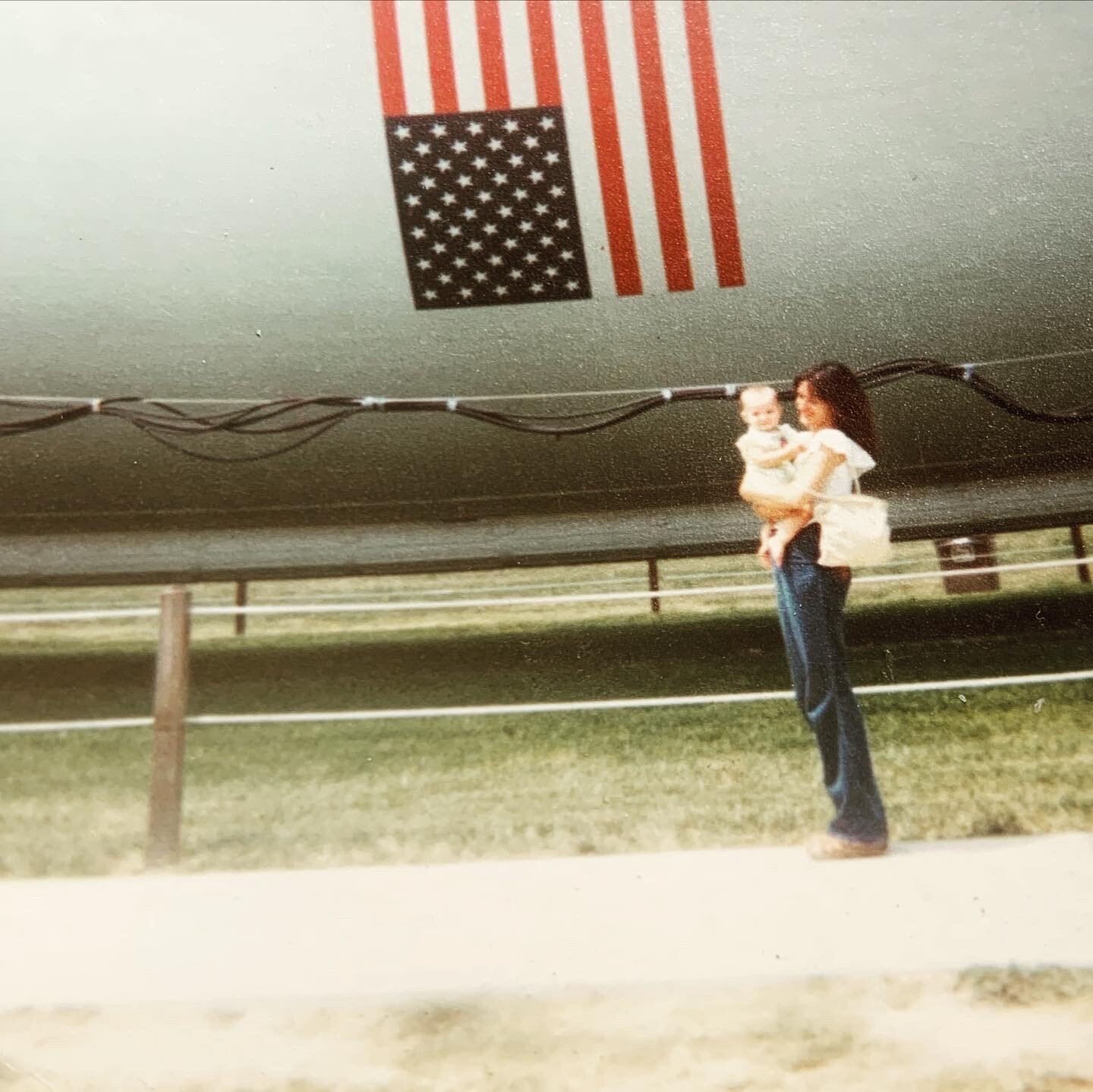Tracee’s Story
For the first time in my life, I hung up some pictures of my mom.
My 7-year-old son asked if we could. I thought it might be a good way for him to know Grandma Sharon.
One was a black and white photo from 1993. She’s wearing a loose hijab, her long hair spilling out from underneath the cloth, and she’s sitting next to powerful Afghan military leader Ahmad Shah Massoud. She died one month after the photo was taken.
The other image shows her sitting at a long boardroom table full of people, including Peter Tomsen, the Special Envoy on Afghanistan under U.S. President George H.W. Bush. She’s the only woman at the table.
I found the pictures recently in an old black file that my grandmother kept. The file was full of items marking my mother’s life as a war correspondent and her tragic death — newspaper clips, obituaries, remembrances from colleagues.
My son and I bought some simple frames and hung two photos on our living room wall.
I found joy in having my mom’s image where she could be seen after 25 years. She has been dead a quarter century, as of 2018; and it’s also the year I turn 39, which was how old she was when she died.
For most of my life, I hated my mom with gusto, and I spent years trying to erase her memory. In fact, my grandma didn’t hand over this file until last year because she feared I’d throw it in the trash.
My anger was that obvious. It spewed from my mouth at every opportunity.
It wasn’t ordinary teenage angst, either. I hated her because she left me … for her career.
“Was she addicted to drugs?” The question was often asked with an empathetic and perplexed tone, one meant to find some meaning in this mess. And because, really, the notion of a woman leaving her baby is almost inconceivable.
“It was work,” I said. “She was a workaholic.” I followed this with an eye-roll or some other nonverbal cue signaling distaste for my mom and her decisions.
Work was the proverbial “other woman.” I loathed her success because it was what took her away.
We aren’t used to hearing that a woman left her baby to pursue highflying career dreams.
A man, sure. Not a woman.
It happened like this: A few weeks after I was born, she left me with her parents in the same rural Colorado town where she grew up. She hated the place for all its quintessential small town-ness, a culture that city-dwellers often label “backward.” But she had no problem leaving her baby there.
When my mom was working as an Associated Press reporter in Dallas, then New York and finally South Asia, she would flit back to our small town when it was convenient. This went on for years. I went months, or even years, without seeing her, and then she died when her helicopter hit a mountain in Afghanistan.
This arrangement — her abandonment — wasn’t something my grandparents and I discussed in real terms.
On the contrary, Grandma insisted that Sharon was a “good mother.”
“I would never discard my child like an old piece of clothing,” I said. It was the only time I shot back at Grandma, because I could see my words scalded her core as if I’d thrown a pan of boiling water.
I spent the next twenty-some years in a near-constant rage, anger always bubbling under the surface and manifesting in the usual unhealthy ways — drinking, drugs, spending.
I called my mom vulgar names, ripped up the few existing pictures of us together. One night in high school, I took a couple of friends to her grave and we dumped cans of cheap beer all over it. At the time, I thought this little barnburner was particularly inventive and spiteful.
Only after the birth of my son did I start viewing my mother as a person, with more empathy and less contempt.
The benefits of forgiveness have long been touted by experts on the subject, including the Dalai Lama. When you consciously let go of anger, you embrace better self-esteem, improved blood pressure and cardiovascular health, and you might even live longer. I can attest that some of these benefits have reshaped my life, though a newfound difficulty has come with letting myself be sad about her death.
Forgiving the dead is no easy feat; there’s no apology forthcoming, and this is a big hurdle to get over. To be sure, it didn’t happen overnight, either. Forgiveness came after countless fights with my husband over fun marital topics such as money, child rearing and quotidian household chores, the ones that seem to increase tenfold once a baby comes into the mix. My mom and I both had babies before we were ready, but I was lucky enough to have one with a partner who wanted to stay, even when things were hard.
Perhaps she couldn’t do the single-parenting thing. She didn’t want to get stuck in that small town, working a job she had no interest in. That life wasn’t for her. Maybe she wanted to get a bit more stable in her career and financial situation before she started coasting. I’ll never know.
The last time I visited my grandmother in her rural Colorado town, I took my son, and his baby sister, to my mom’s grave, the one I desecrated a long time ago. It was dark from cloud cover and rain, a fitting atmosphere. Her name on the stone stared back at us.
“I wish she didn’t die so I could get to know her,” my son said. He has an unusual emotional maturity for his age.
“I do, too,” I said. And we left the cemetery.
This story originally appeared in the Washington Post. Tracee Herbaugh is a freelance writer who lives in the Boston area with her husband and two children.


